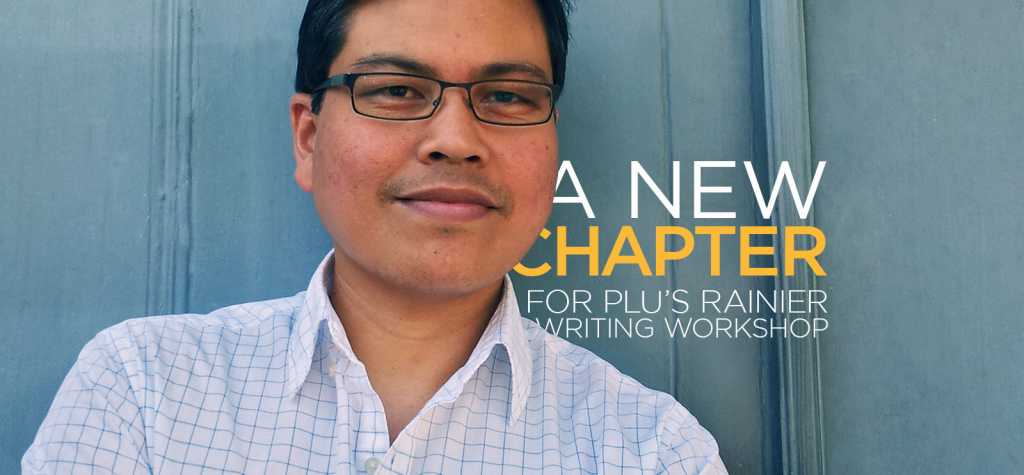Page 93 • (997 results in 0.052 seconds)
-

the value of literature and writing is even more paramount as we move forward, because it’s acting as kind of a resistance to forces in our culture that want to reduce or simplify experience,” Barot said. “What literature does is restore complexity to the things that people feel and do and think, and celebrate complex emotional, social, intellectual experiences.” As for the future of the Rainier Writing Workshop, Barot looks backward and forward, always with the founders’ vision—and achievements
-

. Premiere of Exhibition Inspired By the Norwegian Constitution’s 200th Anniversary “The... September 8, 2014 Supplemental Issue RESOLUTE is Pacific Lutheran University's flagship magazine, published twice a year, with an extra online-only update in September. EDITORIAL OFFICES PLU, Building 29 Tacoma, WA 253-535-8410 Contact Us Links Discovery Alumni News Class Notes Calendar Credits Contact Recent Posts Billboards September 8, 2014 Lutheran Studies Conference September 8, 2014 The Art of Diplomacy
-
university in Norway. He sang in the Everett Norwegian Male Chorus and was a member of the Everett Sons of Norway. In 2013 Chuck’s wife Lois passed away. He is survived by his brother James, his three children Bob Nelson, Jerry Nelson and Gloria Tice; by six grandchildren and three great-grandchildren. Richard “Dick” Harrison Weathermon Richard “Dick” Harrison Weathermon ’50 died at his Pullman home on Feb. 22, 2019, with family at his side. He was born in Hoquiam, WA on Aug. 16, 1927. Raised primarily
-
(medicines, poisons, psychoactive plants), genetic engineering, bio-prospecting, and socio-economic issues surrounding botanical commodities. Prerequisite: BIOL 226. (4) BIOL 358 : Plant Physiology A study of how plants obtain and utilize nutrients, react to environmental factors, and adapt to stress. Focuses on mechanisms at the molecular, cellular, and organismal levels. Explores connections to agriculture and ecology. Relies significantly on primary literature. Includes laboratory. Prerequisite: BIOL
-
, politics, history, kinship, and economics. (4) ANTH 368 : Edible Landscapes: The Foraging Spectrum - ES, GE The course examines foragers in Africa, North America, and Australia. Using classic ethnographic literature, it provides a cultural ecological perspective of foraging societies in a variety of environments. It also examines how foraging studies inform archaeological research and the challenges that these peoples now face in a rapidly changing world. (4) ANTH 370 : The Archaeology of Ancient
-
Assistant Professor of Communication Justin Eckstein has held an unwavering interest in argumentation, from a debate summer camp after seventh grade through all levels of college — undergraduate, graduate and doctorate. “Debate taught me how to construct arguments, it introduced me to a whole host of literature that I would have never been exposed to otherwise. It spiked my curiosity in alternative positions. It also gave me material advantages, it introduced me to a network of potential
-
-year old Girl from Rhodes Saved her Family from the Holocaust” Convener: Heather Mathews, Associate Professor and Chair, Department of Communication, Media, and Design Arts 3:30 - 3:45 p.m. – Break 3:45 - 5:15 p.m. – ``Exploring the experiences of Ladino speakers,`` AUC Regency RoomCanan Bolel, Assistant Professor in Jewish Cultures, Literature, and Languages of the Eastern Mediterranean, University of Washington-Seattle, “Voicing Ladino, Translating into Ladino: The Sephardic Holocaust on Paper
-
academic research on a particular topic or field of study. A literature review often appears towards the beginning of an article.MisinformationInformation, usually false, that is disseminated without an intention to cause harm.PaywallDigital barrier that can be encountered when accessing academic information that your library does not have a subscription to. If you are asked to pay for an article, contact a librarian first.Primary sourcesA first-hand account of a situation or event or any original
-
, the most trying time of all. [1] Words. Words are the heart of the Humanities. Whether they are in English, Spanish, Latin, or Greek. Italian, French, German, Norwegian, Chinese. Words are like images. Words are images. Words become music to the attentive ear. So there is a natural affection between the Humanities and the Creative Arts. Both biblical testaments attest that, “In the beginning was the Word.” Both reveal the divinely creative power of words. For the Gospel of John in the New
-

refugees in labor endure during a 2003 trip to Afghanistan. The desperate images would motivate her to develop a simple concept to help pregnant women who have virtually no access to health care: a sparse kit of clean birthing basics that could save the lives of mothers and children. Røskeland, whose extended family has a deep connection with Pacific Lutheran University and supports her efforts, was born in South Africa to Norwegian parents and subsequently lived in Sudan, Spain and Norway. When she
Do you have any feedback for us? If so, feel free to use our Feedback Form.


